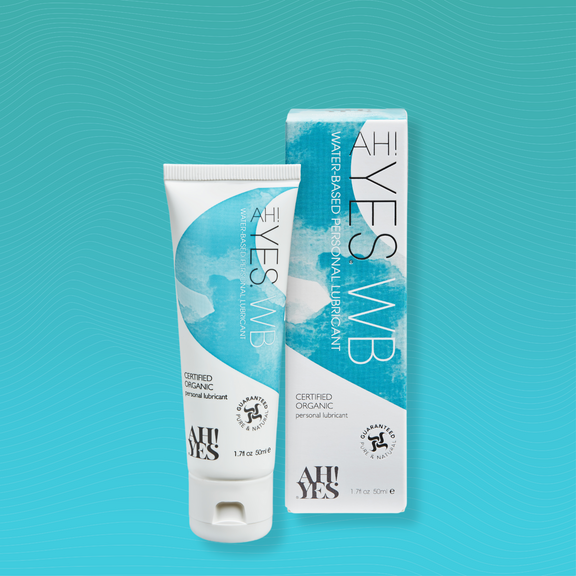7 Common Causes of Painful Sex and How to Find Relief
Let’s face it, the topic of painful sex isn't always easy to discuss. But the truth is, as many as 3 out of 4 of women have experienced it at some point in their lives, and for 5% of us, pain during sex makes a regular appearance. If you or your partner have ever experienced this, you're not alone. While there's no one-size-fits-all solution, there are plenty of ways to find relief and get back to enjoying intimacy.
Painful sex, also called dyspareunia, is something that can be managed with the right knowledge, treatment, and support. Here we’ll explore its symptoms, potential causes, and various treatment options to support your healing journey.
We're thrilled to introduce our dedicated page packed full of helpful resources on the causes and treatments of painful sex. Just click right here to access it.
Understanding the Symptoms of Painful Sex
Painful sex isn't the same for everyone, which is why it's crucial to recognize the signs and seek the right kind of help. You might experience sharp pain or a burning sensation during penetration or a persistent ache during or after sex. Pain could be localized to a specific area of your genital region, or it might only happen during certain sexual positions or activities. Some folks might experience bleeding or vaginal dryness or feel a tightening in their pelvic muscles.
Why Does Sex Hurt?
To tackle the problem, it's important to understand the potential causes of painful sex. Physical, emotional and psychological factors can be at play, and in many cases, it’s a mixture of both.
1. Vaginal Dryness
Not enough lubrication can lead to friction, discomfort, pain and even injury during sex.

You may wish to try lubrication. Using a vaginal lubricant can help alleviate pain and discomfort associated with vaginal dryness, itching, burning and pain during sex. Oil-based lubricants like AH! YES® OB provide a protective emollient barrier over the skin to minimize the risk of injury during sex. AH! YES® WB water-based lubricant is intensely hydrating for dry or irritated intimate tissue. Try using both together for ultimate comfort and pleasure. AH! YES® VM vaginal moisturizer can be used daily to keep dry intimate tissues hydrated.
2. Hormonal Imbalances
Hormone fluctuations, especially during perimenopause or menopause, can contribute to intimate discomfort. Pregnancy and childbirth can also cause significant hormonal fluctuations that might impact sexual function and comfort.
You may wish to try... Hormone Therapy or Hormone Replacement Therapy (HRT). For cases involving hormonal imbalances related to menopause, HRT or vaginal estrogen creams may be recommended by your healthcare provider.
You may also wish to try... lubrication. If vaginal dryness is causing problems during sex, water-based and oil-based vaginal lubricants can be used applied to hydrate and protect intimate tissues.
3. Psychological and emotional Factors
Anxiety, stress, past trauma, abuse, or emotional concerns can manifest physically during intimacy.
You may wish to try... psychological counselling (sex or relationship therapy). Talking therapy can be extremely beneficial in addressing emotional issues, reducing anxiety, and improving overall sexual well-being. You can do this alone or with your partner. You may also wish to combine this with physical therapy or medical intervention depending on your symptoms.
4. Infections and injuries
Certain infections can cause inflammation and pain in and around the vagina. Injuries caused by sex, childbirth or other reasons may be the cause of intimate pain.
You may wish to try... medical intervention
Infections and injuries may require medical treatment. It’s always best to consult your healthcare provider if you believe you have an infection, STI or sexual injury.
5. Medical conditions
Conditions like endometriosis, vaginismus, vulvodynia, uterine fibroids, or skin disorders like Lichen Sclerosus can be culprits.
You may wish to try... medical intervention: Infections, diseases, or inflammation may require medical treatment. Surgical options might be necessary for conditions like uterine fibroids or endometriosis.
You may also wish to try... pelvic floor physical therapy. If you’re suffering from conditions like vaginismus, this therapy can address muscle tension or spasms in the pelvic region, offering relief and improving sexual function. You can also pair with this the use of vaginal dilators. These cylindrical plastic or silicone tubes come in different sizes, helping to maintain vaginal muscle suppleness and prevent vaginal walls from sticking together.
6. Low desire or lack of libido

Not being in the mood for sex can contribute to vaginal dryness, sexual function issues, and emotional distress.
You may wish to try... foreplay and clitoral stimulants. Engaging in foreplay can help stimulate vaginal lubrication and relax your muscles for penetration. Open communication with your partner about what's comfortable for you is key. Experimenting with toys and clitoral stimulants can be an effective way to enhance desire, arousal, and anticipation.
7. Cervical cancer (rarely!) and cancer treatments
Serious conditions like cervical cancer can sometimes cause pain during sex. Cancer treatments such as radiotherapy and chemotherapy can also impact sexual wellbeing. Take a look at our Cancer and Dryness page for support with cancer treatment and vaginal dryness.
Remember, the journey to relief starts with proper guidance and support. Seeking professional help and open communication with your partner can be game-changers when it comes to sexual wellness. Be sure to check out our painful sex page for an in-depth look at the causes and treatments of painful sex, along with helpful resources to support your healing journey. You've got this!





